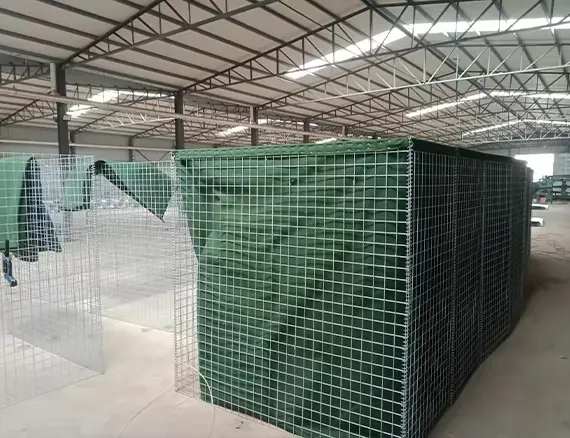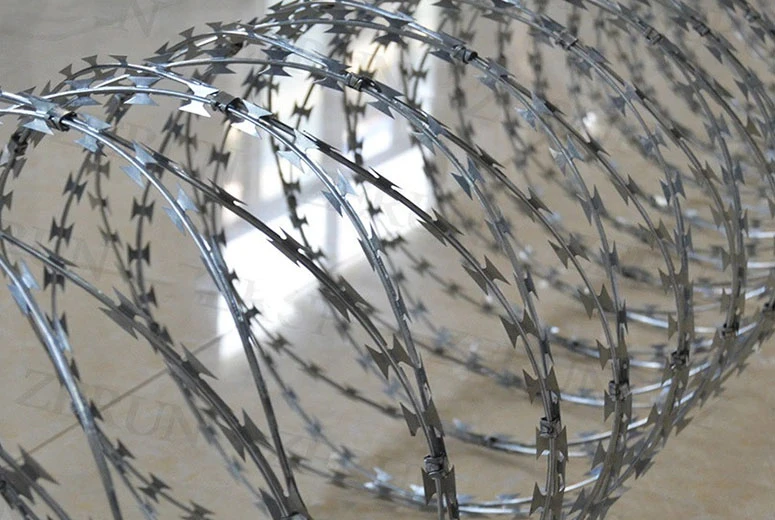Mar . 06, 2025 12:44 Back to list
mesh in concrete driveway
Mesh reinforcement in concrete driveways serves as a valuable addition to enhance the durability, longevity, and overall performance of the pavement. This technique involves embedding a mesh structure, typically made of steel or fiber, into the concrete formulation to provide additional structural strength. Incorporating mesh reinforcement is especially beneficial for driveways, where constant pressure from vehicles and natural elements can lead to cracking or displacement over time. Understanding the core benefits and considerations of mesh reinforcement allows homeowners and professionals to design driveways that stand the test of time.
The selection of mesh material also influences the effectiveness of the reinforcement. Steel mesh, the most common type, provides robust performance and is widely available. It is prized for its strength and cost-effectiveness, making it a preferred choice for residential and commercial driveways alike. Alternatively, fiber mesh offers enhanced flexibility and resistance to cracking at the micro-level, ensuring a smoother surface finish. Fiber mesh is particularly advantageous in projects seeking a balance between performance and aesthetic quality, as it minimizes surface flaws. Implementation of mesh in concrete driveways should be carefully managed by professionals who understand the nuances of mixing, placement, and curing. Proper placement of the mesh within the concrete slab—typically at the mid-point of the slab's depth—ensures optimal performance. Additionally, curing plays a significant role in achieving the desired strength and durability. Controlled curing conditions—adequate moisture, optimal temperature, and minimal stress—facilitate the full activation of the mesh reinforcement, resulting in a driveway that meets both structural and aesthetic objectives. Ultimately, investing in mesh reinforcement is a strategic decision that offers long-term benefits. Enhanced durability reduces maintenance costs and protects the aesthetic value of the property, potentially increasing its market value. Mesh can also be integrated seamlessly with decorative concrete options such as stamping or coloring, allowing homeowners to maintain an appealing exterior without compromising on functionality. In summary, mesh in concrete driveways presents a compelling solution for those seeking robust, long-term performance in their pavement projects. Its role in strengthening the concrete, distributing loads, counteracting environmental effects, and facilitating aesthetic enhancements underscores its critical value. By consulting with experienced professionals and selecting the appropriate mesh type, property owners can ensure their driveways remain resilient, secure, and visually appealing for years to come.


The selection of mesh material also influences the effectiveness of the reinforcement. Steel mesh, the most common type, provides robust performance and is widely available. It is prized for its strength and cost-effectiveness, making it a preferred choice for residential and commercial driveways alike. Alternatively, fiber mesh offers enhanced flexibility and resistance to cracking at the micro-level, ensuring a smoother surface finish. Fiber mesh is particularly advantageous in projects seeking a balance between performance and aesthetic quality, as it minimizes surface flaws. Implementation of mesh in concrete driveways should be carefully managed by professionals who understand the nuances of mixing, placement, and curing. Proper placement of the mesh within the concrete slab—typically at the mid-point of the slab's depth—ensures optimal performance. Additionally, curing plays a significant role in achieving the desired strength and durability. Controlled curing conditions—adequate moisture, optimal temperature, and minimal stress—facilitate the full activation of the mesh reinforcement, resulting in a driveway that meets both structural and aesthetic objectives. Ultimately, investing in mesh reinforcement is a strategic decision that offers long-term benefits. Enhanced durability reduces maintenance costs and protects the aesthetic value of the property, potentially increasing its market value. Mesh can also be integrated seamlessly with decorative concrete options such as stamping or coloring, allowing homeowners to maintain an appealing exterior without compromising on functionality. In summary, mesh in concrete driveways presents a compelling solution for those seeking robust, long-term performance in their pavement projects. Its role in strengthening the concrete, distributing loads, counteracting environmental effects, and facilitating aesthetic enhancements underscores its critical value. By consulting with experienced professionals and selecting the appropriate mesh type, property owners can ensure their driveways remain resilient, secure, and visually appealing for years to come.
Perv:
Next:
Latest news
-
Reinforcing Mesh: Core Material of the Construction Industry
NewsJul.07,2025
-
Welded Wire Fabric Reinvented for Modern Projects
NewsJul.04,2025
-
Superiority of Stainless Steel Woven Mesh
NewsJul.04,2025
-
Key Types of Razor Wire and Their Applications
NewsJul.04,2025
-
Durable Metal Fence Types for Security
NewsJul.04,2025
-
Best Materials for Livestock Fence
NewsJul.04,2025
STAY UPDATED
Receive special offers and first look at new
products.
products.







